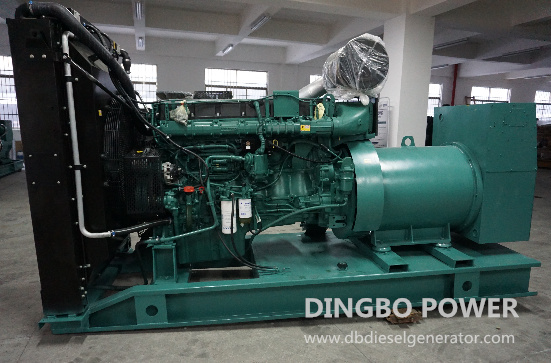In today's rapidly developing society, electricity has become an indispensable part that keeps the smooth running of various industries. Among many backup power solutions, diesel generator sets have become the first choice in many fields due to their high efficiency, flexibility, adaptability and other advantages. However, purchasing a diesel generator is not a simple task. You need to take many factors into consideration. In this article, we’ll explore how to select the diesel generator suitable for you based on the electrical load types.
First of all, what is electrical load? In fact, anything that consume electrical power, such as electrical appliances and lights inside the home, is called electrical load. It is opposed to a power supply source, such as a generator, which provides power.

Types of electrical loads
The types of electrical loads should also be considered when you are buying a diesel generator set. According to the nature of electrical load , it can be roughly divided into three types: resistive load, inductive load and capacitive load. Different types of electrical loads have different requirements for generator sets, so you need to determine the electrical load type before making a purchase.
Resistive load - it refers to load which consumes only active power, such as lights, electric stoves, heaters and any other loads that consist of only heating elements. The voltage and current waveform of such loads are perfectly in phase with each other. The power factor of such loads is unity and close to 1. This type of loads has relatively low requirements for the generator set, and what you need to pay attention to is the rated power and stability of the generator set.
Inductive load - it refers to load which consumes only reactive power, such as electric motor, fans, washing machine, or anything that has a motor inside it. The voltages and current waveform of such loads are out of phase with other other by 90 deg. The power factor of such load is lagging and less than 1. Inductive load will produce a large current surge when starting, so it requires the generator set to have a better starting capacity and a transient overload capacity.
Capacitive load - This type of electrical loads include energy stored in materials and devices, such as capacitors, and cause changes in voltage to lag behind changes in current. The voltages and current waveform of capacitive loads are also out of phase with other other. But they are opposite of inductive loads because in inductive load current lags behind the voltage by 90 deg. Although this type of electrical loads has less direct impact on the generator set, it may cause resonance in the system and affect the stable operation of the generator set.
Other factors to consider when choosing a diesel generator
After determining the electrical load type, you need to analyze the load requirements in depth to determine the specific specifications and configuration of the generator set. This includes the total power of the load, rated power, starting watts, running time, load volatility and future growth of load.
Total power and rated power: Calculate the power rating of all electrical equipment and consider the number of devices used at the same time to figure out the total power demand. Meanwhile, the equipment may have power fluctuations during operation, it is also necessary to consider a certain power margin.
Starting watts: For inductive loads, especially for equipment such as large motors, the starting current is often much higher than the rated current. Therefore, when selecting the generator set, you need to pay special attention to the starting capacity of the unit to ensure that it can start the load smoothly without causing the unit overload or damage.
Running time and load volatility: Understanding the running time and volatility of the load helps to select the appropriate generator capacity and configuration. The prolonged continuous running load requires the generator set to have good durability and stability. The more volatile load requires the generator set to have better adjustment ability and response speed.
Future growth of load: When purchasing a diesel generator set, it is also necessary to consider the growth of the future load. If the load is expected to increase, you should choose a unit with a larger capacity or with extendible configuration, so as to avoid the additional cost of frequent replacement or upgrade equipment.
After you determine the electrical load types and the load requirements, you should also consider other factors, such as the generator efficiency, brand, warranty, budget, etc. Anyway, choosing the diesel generator based on the electrical load types helps you find a cost-effective unit that best fits your needs.
Don’t hesitate to reach out for any further information or assistance if you are looking for a generator set for your business. Contact us at dingbo@dieselgeneratortech.com, and we will gladly help you.
Comments
Post a Comment